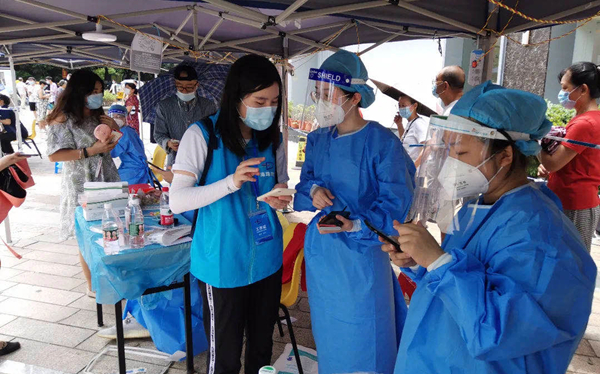Digital technology helps Haizhu combat COVID-19

Haizhu district, in Guangzhou, has adopted advanced technologies in its fight against the COVID-19 pandemic.
While the district is conducting mass nucleic acid testing, working out how to rapidly communicate with and guide residents became a headache for the government.
But with the help of a robot that is able to make 100,000 phone calls per hour, the job can be done in a smarter and more efficient way.
The robot can analyze data, select those who haven't been tested or vaccinated, and then ask them to take a test at a nearby test site.
The robot was designed by China’s AI company iFlytek, which has also provided free smart education solutions for nearly 100,000 teachers and students in Guangdong during the past few weeks, allowing them to attend classes, do homework, take exams and finish evaluations online.
Before booking a nucleic acid test, residents need to fill in their personal information on a WeChat mini program, which has faced a sharp increase in page views in recent days.
To make sure people have smooth access to the mini program, Haizhu government has worked with China’s three major mobile communication companies plus sci-tech enterprises in the district, making all efforts to avoid network failures or system outages.
Haizhu also launched Guangdong’s first drone delivery route in order to transport testing samples. It takes about 10 minutes to get to the destination, much shorter than a 30-minute journey by the normal road delivery vehicle.
All rights reserved. Presented by China Daily

